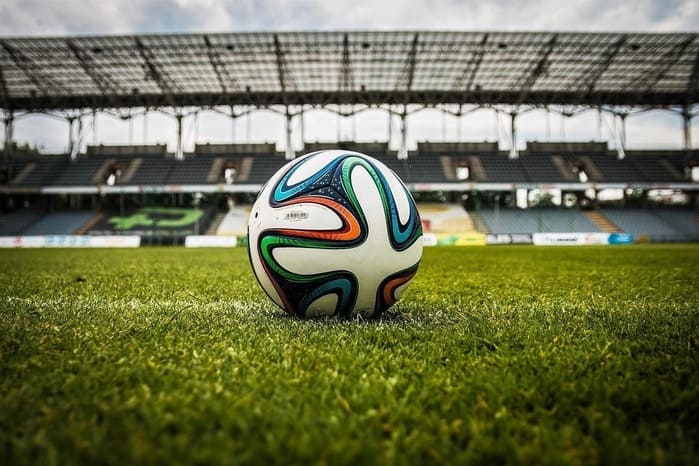
Soccer has become more than just a sport in my community — it’s a tradition as important as Christmas or family birthdays. Strangers and relatives alike gather in a corner store or a living room, with food, beer and a big screen, to cheer every goal, every pass, and to protest every “unjustified” foul — at least according to your uncle, the self-proclaimed expert.
But nothing is more emotional than being in a stadium, surrounded by thousands of people with the same passion running through their veins, the same love for the game that fills your soul. A stadium is a sanctuary of glory, where raising your flag high feels like hoisting the brightest medal the human eye has ever seen.
The FIFA Club World Cup, held this year in the United States, was no different. Chelsea was crowned champion after defeating Paris Saint-Germain 3–0 at MetLife Stadium. Before the final, PSG had left its own mark on the tournament by crushing Real Madrid 4–0 in the semifinals. Chelsea, however, gave us unforgettable moments throughout the tournament — from injuries to Benoît Badiashile, Moisés Caicedo, and Neto, to racking up four yellow cards in the final against PSG as if they were playing a game of Uno.
The MVP of the season
Every save, every goal, every play in this tournament paled in comparison to the moves of one “player” no one had ever seen on the pitch before — a player whose lack of mercy and compassion sent chills through entire communities: ICE.
With the current U.S. administration’s latest policies, the Immigration and Customs Enforcement agency — ICE — took the field, making its presence felt not just on the streets of America’s cities but even in the middle of this global celebration of the beautiful game.
In recent months, ICE has intensified its raids on Latino communities, with thousands detained and a climate of fear that has seeped into businesses, families and cultural events. Reports of abuses and racial profiling have sparked protests and lawsuits, as judges and activists fight to rein in the agency’s most aggressive practices.
José Hernández París, executive director of the Latin American Coalition, put it plainly: “There are no limits to where ICE activities take place, and I believe the purpose of this is to create terror and fear in the community.”
An Act of Courage
Amid chants, waving flags, and goals celebrated with tears of joy, an invisible tension lingered — a quiet murmur of fear that at times overpowered the happiness.
For many Latino fans, simply attending the stadium was more than just a show of love for the sport; it was an act of courage in the face of the uncertainty of being targeted for raids and arrests. Soccer, which should unite us and inspire hope, was overshadowed by the fear that at any corner of the stadium — or on the way home — an ICE van could be waiting. For some, the real battle wasn’t on the field, but in the stands.
A Red Card for Investment?
By the numbers, 19% of the U.S. population is Latino. Of them, about 8% are legal residents or hold other types of permits, while 13% are undocumented, according to data from the U.S. Census Bureau and the Department of Homeland Security.
These figures illustrate the size of one of the country’s most prominent communities — a community with a massive social and economic impact. With the Club World Cup held in the so-called “land of the free” thanks to FIFA, Latinos represented a key source of revenue and excitement. Yet fear — growing like a wave set to swallow everything in its path during these public events — also posed a serious threat to the tournament.
ICE raids and the generalized anxiety in the community led to a sharp drop in Latino attendance at matches. As a result, ticket prices plummeted due to weak demand. Empty seats, tickets slashed by 70% to 90%, and silent stands were the outcome of a nation indifferent to the very people who helped build it — and to one of the most passionate fan bases of the so-called beautiful game.
Immigrant justice advocates like Héctor Vaca, of Advice by Action NC, urge everyone to know their rights before leaving home and to have a lawyer ready — no matter if you are an immigrant or a U.S. citizen — because, as he put it, “our community is under attack.”
Epilogue
For many immigrants, the country of the American dream has turned into a living nightmare — a place where even following all the rules cannot guarantee safety or protection if your face reflects diversity.
For countless Latinos, the simple joy of watching a soccer match with family has become a mere utopia, where the risk of not making it back home outweighs the love of the game.
When did being just steps away from your own front door become a legal issue? How do you go from being a human being to simply a “target community” with a single change of administration? When the greatest crime you’ve committed is speaking the language you grew up with, keeping the traditions you were taught, and carrying the culture that runs through your veins — that is the greatest injustice of all.
Our society, by denying the empathy that once defined it, destroys the most precious thing we have: human diversity. Because no goal is worth it if, in the end, we lose what defines us most — our humanity.



.svg)